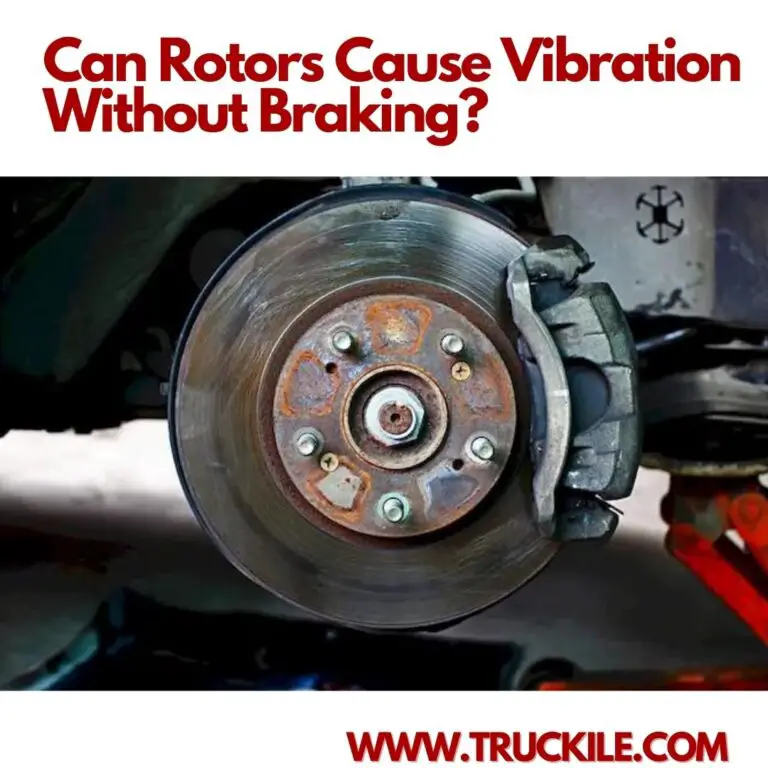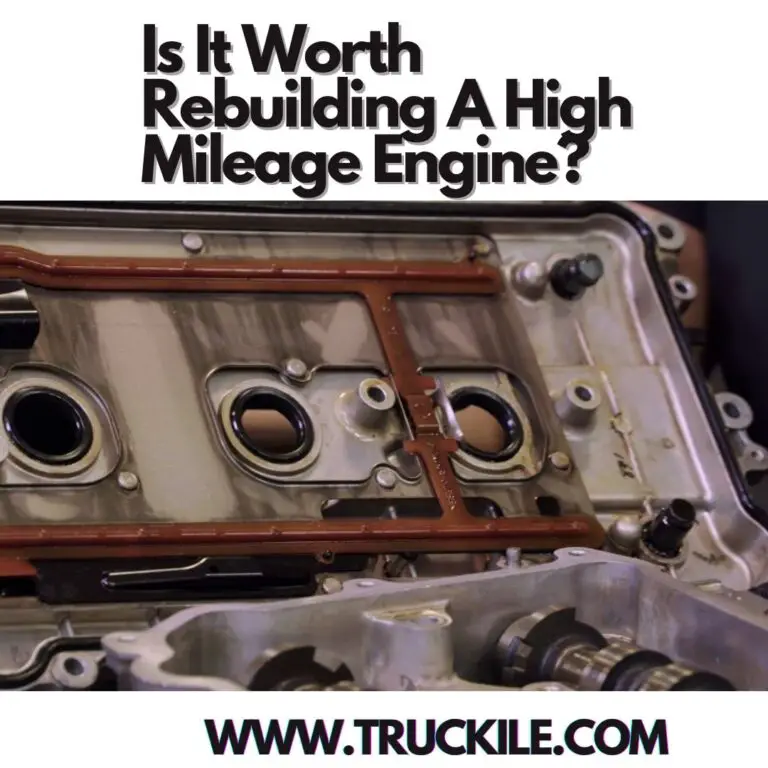Will Bad Rear Shocks Cause Vibration?
Many people think that high-quality shocks are an important requirement for a safe and decent ride. Bad shocks can produce uncomfortable vibration, but also influence fuel consumption by 10% and decrease the useful load.
So, Will bad rear shocks cause vibration?
Let’s get to it.
Will Bad Rear Shocks Cause Vibration?
If the vibration remains constant while you’re driving, it might be a sign that there’s a serious problem with your shocks. At highway speeds, these vibrations could become more intense and hamper your ability to control the car.
How Do I Know If My Rear Shocks Are Bad?
You can tell if your rear shocks are bad by going over a speed bump and seeing how the car reacts. If it bounces multiple times, you probably need new shocks.
The front end of a vehicle usually needs to be aligned at least every couple of years and will have noticeable tire wear patterns if it’s out of alignment.
In a pickup truck or SUV, the rear tires can be out of alignment even if they aren’t wearing unevenly. The rear suspension is typically independent so there is no toe-in or toe-out adjustment like there is on the front end. The rears just adjust for camber and castor – sometimes in trucks they’ll have adjustable shackles that let you set pinion angle too. Even with all that, you’re still not going to get an alignment printout for the rear end like you do for the front end.
Camber and castor are not adjustable on most vehicles unless they’ve been modified from stock settings. If your tires don’t show any uneven wear then an alignment shop may not bother adjusting those angles, but if they are way off then I’d expect them to adjust them anyway.
Can Bad Struts Cause Vibration At High Speeds?
A bad strut can cause a vibration at high speeds, but usually it is not the strut that is bad. The most common reason for a vibration felt at high speed (60 mph or higher) is worn tires.
When tires are worn, the tread design becomes uneven. This causes the tires to have what is called a “hop”. The hop creates an out-of-balance condition that will be felt as a vibration through the steering wheel and seat.
If you were to put two new tires on only one end of your car and drive it down the road, you would feel the hop in the wheels that have old tires.
Another cause of vibration at high speed is a bent front wheel. A bent wheel can be caused by hitting a pothole or curb, but it may not cause any problems until it gets hot from driving down the road.
How Do You Check Rear Shocks By Hand?
It’s very easy to check the shocks by hand, just bounce the car several times and see how fast it is bouncing back.
However, if you want to be more sure about it, you can jack up the rear axle and remove the tires so you can see them better. Then shake or tap on the shock and see if there is any play in it. If there is any play, then it’s time to change the shocks.
You can also check for leaks in the shocks by doing this. Oil leaking from a shock absorber usually means its time to replace them.
While you are at it, try to shake the tire while holding the top of the shock absorber. If there is play in one of your bearings, you will feel it here when shaking the tire.
Do Rear Shocks Make Noise?
Yes, they do. If you hear a noise that sounds like metal scraping against metal, it’s probably the shock. Not only will this make a loud noise, but it can also cause damage to your vehicle in the long run. If you are having trouble with your rear shocks and need repairs, schedule an appointment with a professional.
When To Replace Your Rear Shocks
There are many signs that indicate that your rear shocks are in need of replacement. You may have noticed that your vehicle is not as stable when you are driving over bumps or cracks in the road. Or, perhaps you have noticed that your vehicle is sagging more than usual. These are all indicators that your rear shocks need to be replaced.
If you notice any of these signs or if it has been a while since your last replacement, schedule an appointment with a professional.
What Is A Clunking Sound?
Clunking sounds. They’re among the most common noises a car can make, and they’re usually pretty easy to diagnose.
A clunking sound can mean many things, but the most likely explanation is that you’ve run over something or your tires have thrown a rock up against your undercarriage. Sometimes, it’s not a big deal. If a rock is thrown up with enough force, it might just bounce off harmlessly. Other times, though, rocks can dent parts of your car’s undercarriage or cause damage to shocks or struts.
Inspect your car for damage if you hear a clunking sound. If there’s nothing obvious, you may want to take it to a mechanic so he can examine the suspension and other components that could be damaged by rocks or debris on the road.
Why Is My Car Rattling At The Back?
Rattling sounds from the back of your car can be caused by many things. It is important to identify the exact location of the rattling noise. If you are certain that it is coming from the back and not from under the car, then inspect the luggage compartment or trunk.
If there is something loose inside, such as a jack handle or tire iron, tighten it down. Also check any spare tires and make sure they are securely held in place if they are there.
If you have a hitch on the back of your car, check to see that all pins are in place and secure. If so, move to the area where the exhaust pipe pipes through to the interior of the car. Check to see that no furniture or other items are lodged against it.
A common problem with cars is loose suspension parts causing noises such as rattles, squeaks, clunks, vibration and shimmy problems. Some of these issues pertain to safety as well as noise concerns.
When Replacing Shocks What Else Should Be Replaced?
You’re not doing yourself any favors by waiting to replace your shocks and struts. Your car will feel less stable, especially over bumps and uneven pavement.
You wouldn’t drive a car with a flat tire, would you? So why would you drive a car with worn out shocks? They’re just as dangerous.
A bad shock can cause your tire to come off the road and make it hard for you to steer in an emergency situation. At highway speeds, your shocks are essential for keeping your tires on the road. They also help keep your vehicle from sliding sideways when you have to brake hard or take a corner fast.
You’ll notice that your vehicle bounces more than usual, especially after hitting a bump in the road. This is caused by the shock’s inability to control the suspension. The springs bounce back up because there’s nothing to slow them down. You might even see your wheels and tires bouncing up and down in front of you when it happens!
The most obvious sign that something is wrong with your shocks or struts is if they are leaking fluid. This means there is a hole somewhere in either component which needs immediate attention before causing further damage elsewhere on vehicle (like brakes).
Can Bad Sway Bar Links Cause Steering Wheel Vibration?
Bad sway bar links can absolutely cause steering wheel vibration. Sway bar links are an important part of the suspension system for any vehicle. They connect the sway bar, which runs from side to side on your car, with the rest of the suspension system.
A bad sway bar link will produce a lot of noise while you’re driving and cause uneven tire wear. But they can also produce steering wheel vibration at highway speeds. It’s worth taking a look at what causes steering wheel vibration and how you can tell if it’s caused by bad sway bar links.
The first thing to understand is that steering wheel vibrations aren’t always caused by issues with your tires or wheels. There are a number of other causes that should be considered first, so you can make sure you get the right repairs done.
Will Bad Rear Shocks Cause Vibration – Conclusion
As a recap, here is our response to the question, Will Bad Rear Shocks Cause Vibration?
If the vibration remains constant while you’re driving, it might be a sign that there’s a serious problem with your shocks. At highway speeds, these vibrations could become more intense and hamper your ability to control the car.
Thanks for reading.

Joe lives and breathes cars and trucks. After many years working in the Auto industry, he decided that it is only right to share his knowledge with the public. As a qualified expert in trucks and cars, he started working for Truckile.com and is the main editor and publisher.






